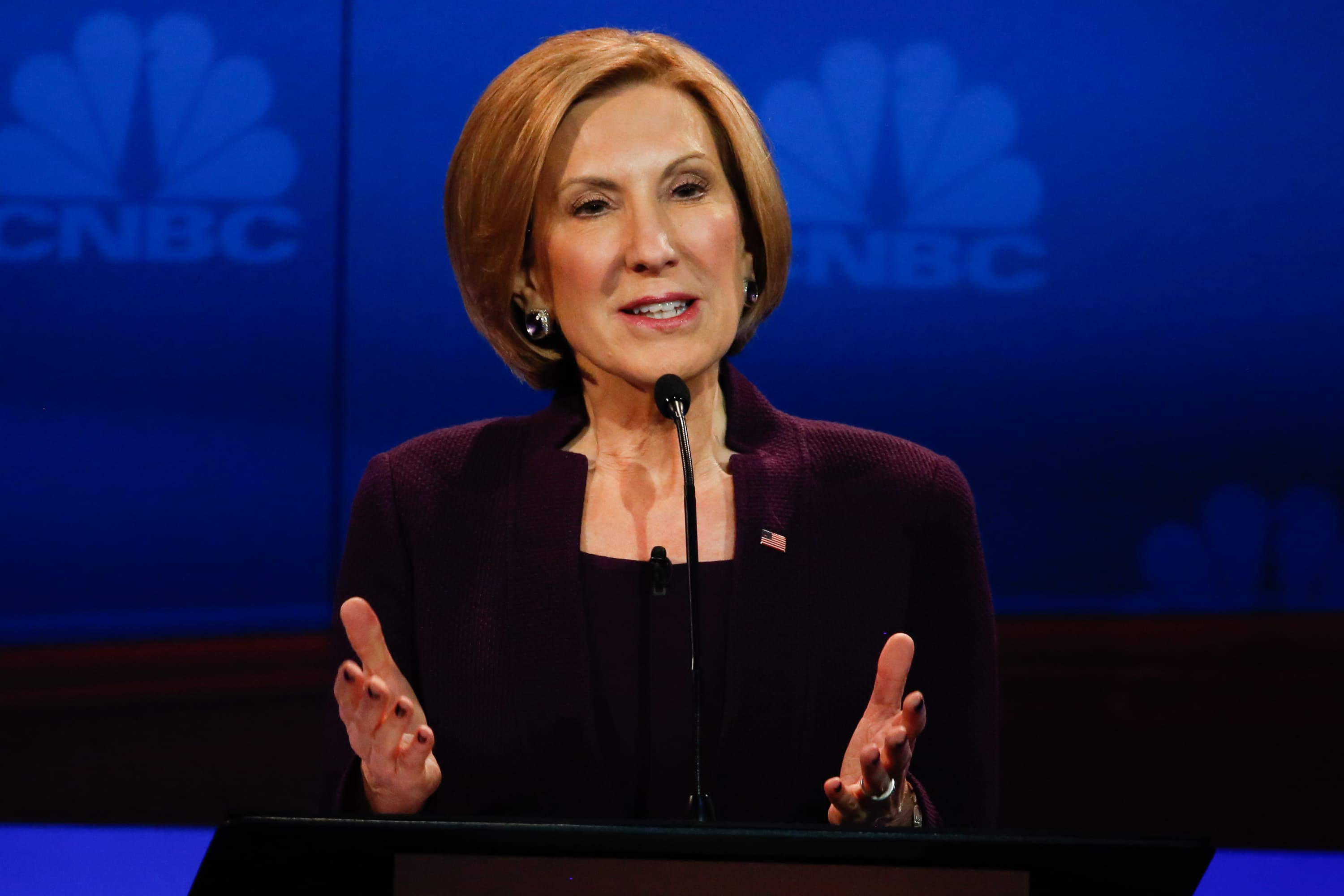
Former Hewlett Packard CEO Carly Fiorina criticized the coronavirus relief package passed by Congress and signed by President Donald Trump on Friday, saying that the bill was too generous to large companies.
“It’s the $500 billion of corporate bailout that I object to. I think it is not taxpayer money well spent, and I don’t think the companies have earned it, and they have vast resources at their disposal through some of the backstops and extraordinary measures that the Federal Reserve has taken,” Fiorina said Friday on CNBC’s “Closing Bell.”
The House of Representatives approved the $2 trillion bill on Friday, and Trump signed it later that afternoon. The bill includes a loan program for small businesses, payments to hospitals and an expansion of unemployment benefits.
Fiorina said she liked portions of the bill but took issue with roughly a quarter of the money being earmarked for major corporations.
“$500 billion in corporate bailouts I think could be far better used. I think we could do more for small businesses, for example. I think we could prepare for the mental health crisis that’s going to ensue. I think we could be preparing for domestic violence and child abuse cases that are going to skyrocket,” Fiorina said. “Corporate bailouts in general don’t work particularly well.”
Fiorina said large companies should have done a better job preparing for a major shock, criticizing Boeing and airlines in particular.
“The cause of the economic slowdown is no one’s fault, absolutely right. I’m just trying to make the point that it is a company’s responsibility to prepare for bad times in good times. That is part of a CEO’s job,” Fiorina said.
Big businesses have ways to continue operating and paying workers, such as credit lines and bankruptcy laws, that small businesses can’t take advantage of, Fiorina said.
“Of course we need to try to save jobs, but the truth is the small businesses in total have more jobs at stake than these big companies do,” Fiorina said.
Fiorina, now the chairman of Carly Fiorina Enterprises, ran for the Republican nomination for president in 2016 against Trump.
She also said on Friday that she was uncomfortable with the government taking equity stakes in companies, saying it was “starting down the path of nationalization.”
Source: Business - cnbc.com


